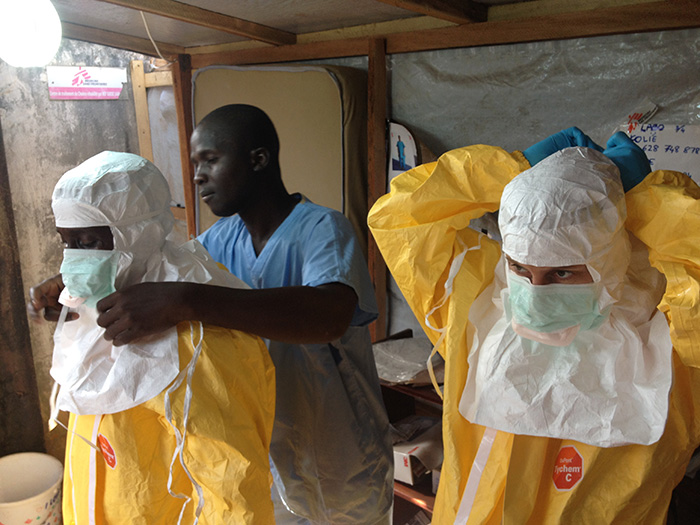ebola-team-c-european-commission-dg-echo.jpg

A medical team during the Ebola outbreak. Credit: European Commission
A report, published today by the International Working Group on Financing Preparedness (IWG), stressed the need to break the cycle of “panic and neglect” that has dominated the world’s approach to pandemics so far.
It called instead for lessons to be learned from the Ebola crisis and Zika and for investment to be scaled up, so that outbreaks can be prevented or contained before they snowball.
“Preparedness at a national level is the first line of defence, and thus the foundation of universal health security,” explained Peter Sands, former CEO of Standard Chartered Bank who now chairs the IWG and is a senior fellow at Harvard University.
“Yet we have underinvested in the capabilities and infrastructure essential for preparedness,” he continued. “Given the scale of risk to human lives and livelihoods, the investment case for financing preparedness is compelling.”
As well as lost lives, the report pointed out that even a small pandemic can cause immense economic damage. The most conservative estimates put this as between 0.1-1% of global GDP, with some research suggesting the annual global cost of a moderately severe to severe pandemic being $570bn – 0.7% of global income.
Yet only 37 countries have made efforts to evaluate the gaps in their preparedness capacities, leaving 162 countries that have not. And of those 37, only two have used the results to devise costed plans of action.
This is despite findings that investing in preparedness in low- and middle-income countries would cost around $1 per person per year.
The money would help prevent, detect and respond to the spread of disease in both humans and animals that have close contact with humans by increasing surveillance, establishing diagnostic laboratories and setting up emergency operations centres for early identification and containment.
It noted that with the frequency and diversity of disease outbreaks increasing steadily over the last 30 years, such measures are critical.
Liberia, Sierra Leone and Guinea’s economies and populations are still recovering from the Ebola crisis, that started in 2014 and came to an end last year, killing thousands and putting massive strain on the countries’ services and resources.
Meanwhile, the disease has just reemerged in the Democratic Republic of Congo for the eighth time. DRC, the report noted, has a strong record of containing previous outbreaks.
The IWG’s report put forward 12 recommendations to increase preparedness, including: the development of costed action plans, supported by financing proposals and investment cases; reinforcing tax resources, including earmarked taxes, to finance preparedness; and ensuring donors fulfil their commitments, and focus their aid on large, one-off capital expenses that countries cannot afford.
Margaret Chan, outgoing director-general of the World Health Organisation, said implementing the recommendations would ensure every country mobilises the necessary resources to prevent, detect and respond to outbreaks.
“We’ve been waiting for bold thinking on financing since at least the mid-nineties,” she noted.













